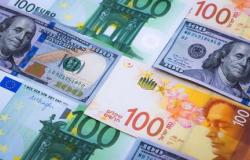
Ma Ying-jeou (center), former chairperson of the Chinese Kuomintang Party, holds a banner to welcome the visiting Chinese mainland faculty delegation on July 15, 2023. Photo: Global Times
Former chairperson of the Kuomintang (KMT) party Ma Ying-jeou kicked off his 11-day trip in the Chinese Mainland on Monday, with observers from both the island and the mainland paying great attention to his visit, as they expect Ma will be able to boost exchanges between youths from both sides, and balance the negative impact brought by the secessionist Democratic Progressive Party (DPP) authorities.
Ma and 20 young students from Taiwan arrived at Shenzhen airport on Monday afternoon. During their trip, they will reportedly visit Guangdong Province, Shaanxi Province and Beijing, and according to Taiwan media, they are expected to meet with senior mainland officials and engage in communication and exchanges with mainland people and students.
Song Tao, head of the Taiwan Work Office of the Communist Party of China (CPC) Central Committee and the Taiwan Affairs Office of the State Council, met with Ma on Monday in Shenzhen.
Song said compatriots on both sides of the Taiwan Straits are all Chinese, and they should uphold the 1992 Consensus and firmly oppose “Taiwan independence” separatist activities and external interference.
He called on people from across the Straits to actively promote exchanges and cooperation in various fields, jointly promote the Chinese culture, enhance kinship and well-being of the compatriots on both sides of the Straits, boost peaceful and integrated development of cross-Straits relations and strive for national reunification and rejuvenation.
Ma said that compatriots on the two sides of the Straits are closely bound by blood, he called for boosting cross-Straits exchanges and cooperation, particularly among young people, on the political foundation of upholding the 1992 Consensus and opposing “Taiwan independence.”
Before his departure, Ma told the media that he hopes the trip can send a message of the Taiwan people loving peace amid cross-Straits tensions. “This is a trip of peace and friendship,” he said, adding that he holds no public post in the island authorities or political parties, and the only thing he can do is to boost exchanges between the youths of two sides to reduce hostility and accumulate kindness.
In April, 2023, Ma and a delegation of Taiwan youth also visited the mainland in a trip that covered multiple major cities including Shanghai, Nanjing, Wuhan, Changsha and Chongqing. When seeing Ma off, Song told him that his visit had positive significance for promoting exchanges between compatriots on both sides of the Taiwan Straits and the peaceful development of cross-Straits relations.
Wang Zhenwei, director of the Institute of Politics under the Taiwan Research Center at Xiamen University, told the Global Times on Monday that “Although the DPP won the regional leadership election in January, about 60 percent of Taiwan voters didn’t vote for the secessionist candidate Lai Ching-te, which means that the majority of Taiwan residents call for peace and development and oppose secessionism that could provoke war.”
Ma and the young students who came with him can represent the 60 percent of public opinion to some extent, so by receiving them with friendship and kindness, the mainland is also responding with kindness not only to Ma and his delegation but also to the majority of Taiwan residents, said Wang.
“The majority of the island that calls for peace and cross-Straits development are the key force to restrain secessionism and the DPP, and to prevent extreme secessionist acts that could provoke a direct military conflict between the mainland and the island,” Wang noted.
Expectations within Taiwan
Taiwan media outlets are paying great attention to Ma’s mainland trip, as they expect that Ma will be able to meet senior mainland leaders in Beijing. Some media commentators and politicians in the island expressed hopes that Ma can help fix cross-Straits ties that were seriously damaged by the DPP’s secessionist, provocative and hostile policies against the mainland.
However, other analysts from Taiwan said that Ma might only be able to play a limited role. Kuo Jeng-liang, a former Taiwan politician and media commentator on politics, said on a local TV program that “Now the DPP is the ruling party, and Ma is a former regional leader, and has no position in the KMT, what he can do to impact policies on both sides is a question.”
If Ma can effectively influence DPP leaders like Lai and Tsai Ing-wen, or at least the KMT leaders that have effective control in relevant authorities, “then we can say Ma’s trip can bring an impact to the policies, otherwise the effect will be limited ,” Kuo said.
Wang Bing-Chung, a political commentator and former politician of the pro-reunification New Party in Taiwan, also told the Global Times on Monday that “Ma’s trip is symbolic rather than one that focuses on concrete affairs. But if he can continue exchanges under the DPP’s rule, this kind of activity will be meaningful to reinforcing the foundation for cross-Straits peaceful development.”
And if Ma can reinforce his firm attitude of anti-secessionism and receive a positive response from the mainland, this will encourage the pro-reunification or at least anti-secessionism forces in the island to correct the mistake made by the DPP and be encouraged when fighting against the secessionists, Wang Bing-chung noted.
Analysts from the Chinese mainland said that the DPP has imposed many obstacles for mainland people to visit Taiwan island, and many local Taiwan media outlets also fail to report on the mainland objectively, while the mainland is confidently opening its arms to welcome Taiwan compatriots. This has caused a huge misunderstanding between the two sides, especially among Taiwan residents, as they are unable to learn facts about the mainland.
“By receiving Ma and young students from the island, with Taiwan media outlets paying great attention to their trip, we can break the wall built by the DPP and build a bridge on our own to let more Taiwan residents see and hear from the mainland without prejudice and bias,” said a Beijing-based expert on cross-Straits affairs who asked for anonymity.
“We can show millions of Taiwan compatriots through Ma, the young students and Taiwan media which travel with him the achievements in cutting-edge technologies and development that we have made in recent years. We can let them see that they can be proud of the development of the whole of China,” the expert said.
“We can also show them the shared memories of our country’s history, about the fight that we had against foreign invaders, and we can also honestly tell them that the Chinese mainland has already become much more advanced than Taiwan in many aspects. These are not directly related to policies and sensitive affairs about politics, but could also quietly influence public opinion within the island,” the expert noted.
Tags: Mas mainland trip reflects mainstream Taiwan calls antisecessionism crossStraits peace expert
-




